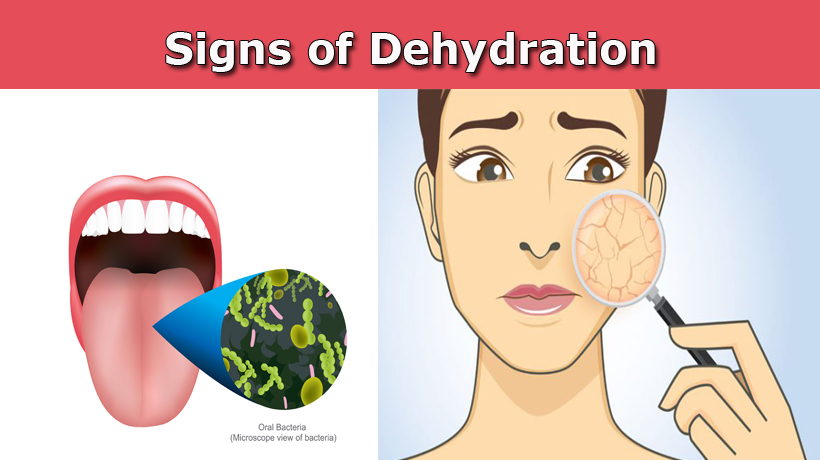Dehydration is a serious condition in which your body has an insufficient amount of water and cannot function as well as it should. Whether mild or severe, dehydration should be reversed as soon as possible to help your body recover. While most symptoms are easy to diagnose—such as dry mouth, dark-colored urine, and dizziness—there are others that can be sneaky. Here are some not so obvious signs that you’re dehydrated.
You feel mentally sluggish
Mental fogginess can occur from many factors, but did you know that dehydration is one of them? According to a study published in The Journal of Nutrition, “When female volunteers, at rest or during exercise, were dehydrated (mean loss of 1.36% body mass), vigor, fatigue, and aggregate mood, assessed by total mood disturbance score, were adversely affected.”
Your brain is made up of 80% water, and its cells need fluid to perform daily functions. Without enough water, your cognitive functions and attention will decrease, causing fatigue, irritability, and mood swings.
You have food cravings
Feeling hungry every few hours is normal. However, if you feel hungry all throughout the day, then you might be dehydrated. According to Alissa Rumsey, RD, spokesperson for the American Academy of Nutrition and Dietetics, “Mild dehydration is often masked as feelings of hunger, when really your body just needs fluids.”
Your hypothalamus regulates your satiety and thirst levels. If you’re dehydrated, then your hypothalamus’s functions get confused, causing it to send signals that you’re hungry when you’re not.
You have chronic headaches
Headaches are usually caused by stress, but dehydration plays a part in making your head hurt. According to the National Headache Foundation, “Headaches are a common symptom of mild to moderate dehydration…In fact, many types of headaches (such as migraine) can be triggered by dehydration.”
As aforementioned, your brain is composed of 80% water, and if that amount is reduced, it can lead to headaches or instability. These headaches don’t occur on their own, so be sure to assess if you have other symptoms of dehydration.
You have bad breath
Having bad breath is an obstacle that people face every day. However, if your bad breath persists no matter how well you brush, then you may be dehydrated. According to a study published in The Journal of Gerontology, “Body dehydration is associated with decreased parotid salivary gland flow rates, and that these changes are generally age-independent in healthy adults.” When you’re dehydrated, your salivary glands reduce saliva production due to insufficient water levels in your body. This means that food and plague linger longer on your gums, causing bad breath when they decay.
Your skin has poor elasticity
Water helps your skin produce oil, reduce blemishes, prevent dryness, and more. The biggest thing hydration affects is skin elasticity—also known as skin turgor—which is a term used for how skin can return to normal after it changes shape. If you’re dehydrated, your skin won’t be able to return to its normal position quickly if it’s pinched or touched.
According to Dr. Steven Deliduka, MD and board-certified dermatologist of Forefront Dermatology, “Proper hydration levels help the skin to become plump and improves its elasticity meaning it’s less likely to crack and have irritations and blemishes.”
Sources:
Lawrence E. Armstrong, Matthew S. Ganio, Douglas J. Casa, Elaine C. Lee, Brendon P. McDermott, Jennifer F. Klau, Liliana Jimenez, Laurent Le Bellego, Emmanuel Chevillotte, Harris R. Lieberman; Mild Dehydration Affects Mood in Healthy Young Women, The Journal of Nutrition, Volume 142, Issue 2, 1 February 2012, Pages 382–388. https://doi.org/10.3945/jn.111.142000
https://www.health.com/health/gallery/0,,20920951,00.html?slide=116553#116553
https://headaches.org/2016/07/07/headaches-and-dehydration/
https://www.ncbi.nlm.nih.gov/pubmed/9310086
https://forefrontdermatology.com/role-water-plays-skin-health/



